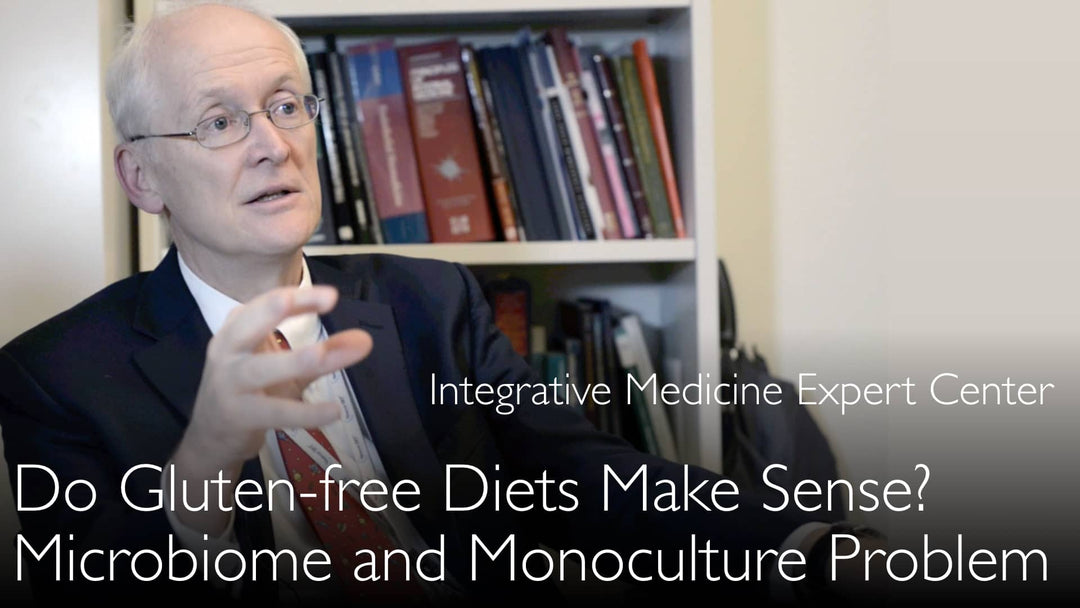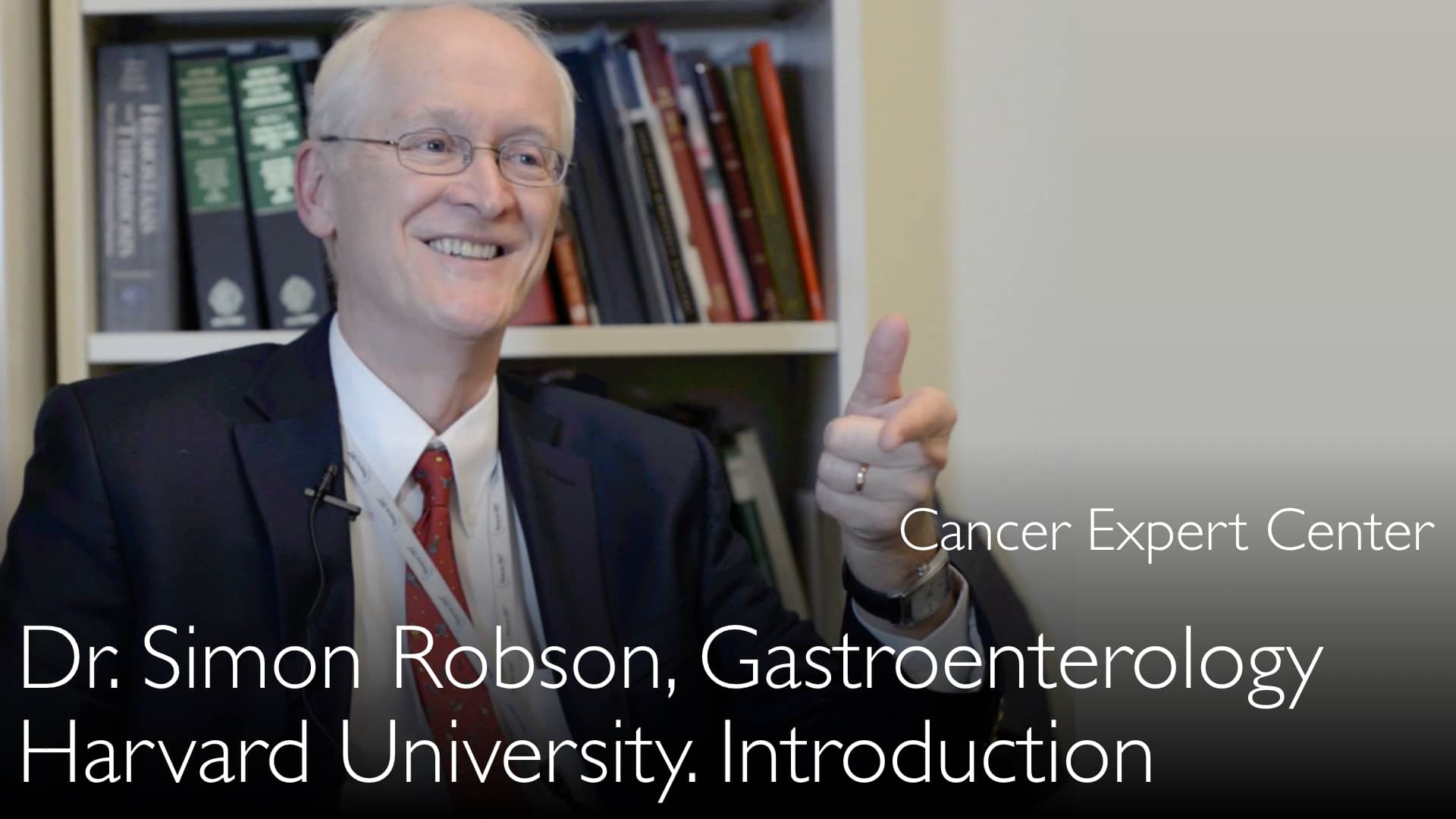Le Dr Simon Robson, MD, expert de renom en maladies gastro-intestinales et hépatiques, décrypte le lien complexe entre les régimes alimentaires modernes et la santé intestinale. Il examine l’impact évolutif de l’agriculture sur la nutrition humaine et le microbiome. Le Dr Robson développe l’hypothèse de l’hygiène et son association avec la hausse des maladies auto-immunes, dont la maladie cœliaque. L’entretien aborde également les bénéfices contestés des régimes sans gluten et pauvres en FODMAP pour le grand public. Un deuxième avis médical reste essentiel pour établir un diagnostic précis d’une véritable sensibilité au gluten.
Les bienfaits du régime sans gluten : effets sur le microbiome et risques de maladies auto-immunes
Aller à la section
- Impact évolutif de l’agriculture sur la nutrition
- Hypothèse hygiéniste et augmentation des maladies auto-immunes
- Monoculture et modifications du microbiome
- Preuves scientifiques du régime sans gluten
- Régime pauvre en FODMAP pour le syndrome de l’intestin irritable
- Deuxième avis médical pour le diagnostic
- Transcription intégrale
Impact évolutif de l’agriculture sur la nutrition
Le Dr Simon Robson, MD, offre un éclairage historique sur la nutrition humaine. Il relève que les données squelettiques indiquent une diminution de la stature humaine après l’avènement de l’agriculture. Cette observation est contre-intuitive, puisque l’on s’attendrait à une plus grande abondance alimentaire grâce à l’agriculture. Le Dr Robson avance que l’agriculture intensive en monoculture pourrait avoir engendré des carences nutritionnelles. Cette transition, par rapport au régime varié des chasseurs-cueilleurs, aurait pu avoir des conséquences durables sur la santé humaine.
Hypothèse hygiéniste et augmentation des maladies auto-immunes
L’hypothèse hygiéniste propose une explication convaincante à la hausse des maladies auto-immunes. Le Dr Simon Robson, MD, explique que l’hygiène moderne réduit notre exposition aux bactéries naturelles. Notre alimentation, trop aseptisée – avec du lait pasteurisé et des jus stérilisés –, manque de microbes bénéfiques. Cette absence de stimulation bactérienne peut perturber le système immunitaire, qui se met alors à attaquer les tissus de l’organisme, conduisant à des pathologies comme la maladie cœliaque, la polyarthrite rhumatoïde ou les hépatites auto-immunes.
Monoculture et modifications du microbiome
Les pratiques agricoles modernes altèrent significativement le microbiome intestinal. Le Dr Simon Robson, MD, établit un lien entre la monoculture et des modifications délétères de la flore intestinale. Ces altérations du microbiome sont associées à une incidence accrue des maladies inflammatoires chroniques de l’intestin (MICI). Les patients atteints de maladie de Crohn, de rectocolite hémorragique ou de syndrome de l’intestin irritable seraient particulièrement touchés. Le recours à une variété limitée de céréales, comme le blé moderne, est un facteur clé de ce phénomène.
Preuves scientifiques du régime sans gluten
Les bénéfices d’un régime sans gluten pour le grand public ne sont pas établis. Le Dr Simon Robson, MD, souligne qu’il existe peu de preuves scientifiques en faveur d’une exclusion volontaire du gluten. Pour les personnes sans maladie cœliaque ou sensibilité avérée, ce régime pourrait même s’avérer néfaste, risquant de provoquer des carences nutritionnelles s’il n’est pas correctement suivi. L’entretien avec le Dr Anton Titov, MD, met en lumière que les bénéfices pourraient provenir de la réduction d’autres substances nocives présentes dans le blé moderne, plutôt que du gluten lui-même.
Régime pauvre en FODMAP pour le syndrome de l’intestin irritable
Le régime pauvre en FODMAP est une intervention diététique drastique qui peut soulager certains patients. Le Dr Simon Robson, MD, précise que FODMAP désigne les Fermentable Oligosaccharides, Disaccharides, Monosaccharides And Polyols (oligosaccharides, disaccharides, monosaccharides et polyols fermentescibles). Il s’agit de glucides spécifiques présents dans de nombreuses céréales et autres aliments. Ce régime, scientifiquement validé pour la gestion des symptômes du syndrome de l’intestin irritable (SII), est plus ciblé qu’un régime sans gluten général et doit être entrepris avec un suivi médical.
Deuxième avis médical pour le diagnostic
Obtenir un deuxième avis médical est crucial pour un diagnostic précis des troubles liés au gluten. Le Dr Simon Robson, MD, et le Dr Anton Titov, MD, insistent tous deux sur ce point. Un deuxième avis permet de confirmer si un patient souffre de maladie cœliaque, d’une sensibilité non cœliaque au gluten ou d’une autre pathologie. Il garantit que le traitement, pouvant inclure un régime sans gluten ou pauvre en FODMAP, soit adapté et fondé sur des preuves. Cette démarche évite des restrictions alimentaires inutiles et favorise une prise en charge efficace.
Transcription intégrale
Dr. Anton Titov, MD : Bienfaits du régime sans gluten ? Le blé muté et d’autres céréales modifient notre microbiome. Les effets de la monoculture sur l’approvisionnement alimentaire entraînent une augmentation des maladies inflammatoires de l’intestin, de la maladie de Crohn, de la maladie cœliaque et d’autres troubles auto-immuns.
Un mode de vie trop aseptisé favorise les maladies auto-immunes. Le régime sans gluten n’est qu’un aspect des modifications du microbiome intestinal. Les changements liés à la monoculture réduisent les risques de maladies auto-immunes.
Dr. Anton Titov, MD : L’évolution du microbiome et de la monoculture a affecté les bactéries intestinales humaines. Y a-t-il un intérêt à adopter volontairement un régime sans gluten ?
Dr. Simon Robson, MD : Avec les débuts de l’agriculture, la taille corporelle humaine a diminué. Cela pourrait refléter une mauvaise adaptation des bactéries intestinales au passage à une agriculture sédentaire en monoculture.
Les bénéfices du régime sans gluten pour tous ne sont pas clairs.
Dr. Anton Titov, MD : La réalité derrière les régimes sans gluten est qu’ils peuvent réduire d’autres substances potentiellement nocives issues de la monoculture.
L’hypothèse hygiéniste postule qu’une faible exposition aux bactéries et virus naturels amène le système immunitaire à s’attaquer à l’organisme. Elle explique l’augmentation des maladies auto-immunes à l’époque moderne.
Le régime pauvre en FODMAP est une variante extrême du régime sans gluten.
Dr. Simon Robson, MD : Il existe peu de preuves scientifiques concernant les bénéfices du régime sans gluten. Il peut même être nocif pour certains patients.
Que signifie FODMAP ? FODMAP désigne les Fermentable Oligosaccharides, Disaccharides, Monosaccharides And Polyols. Mais le régime pauvre en FODMAP peut aider les patients souffrant du syndrome de l’intestin irritable.
Le régime sans gluten pourrait présenter des avantages pour les athlètes. Novak Djokovic suit un régime sans gluten.
Dr. Anton Titov, MD : Un deuxième avis médical permet de s’assurer que le diagnostic de sensibilité au gluten est correct et complet. Les bénéfices du régime sans gluten sont significatifs pour certains patients.
Un deuxième avis médical aide également à choisir le meilleur traitement pour une sensibilité au gluten patente ou infraclinique.
Dr. Simon Robson, MD : Les modifications du microbiome dues à la production alimentaire moderne en monoculture peuvent être néfastes. Ces changements peuvent entraîner une maladie cœliaque, une rectocolite hémorragique, une maladie de Crohn ou un syndrome de l’intestin irritable.
Ces patients pourraient tirer le plus grand bénéfice d’un régime sans gluten.
Dr. Anton Titov, MD : Parlons des maladies inflammatoires gastro-intestinales.
Dr. Simon Robson, MD : L’une d’elles est la maladie cœliaque, une pathologie auto-immune liée à l’intolérance au gluten. On évoque souvent les bienfaits potentiels du régime sans gluten, même pour les patients sans intolérance avérée.
Des publications récentes mentionnent d’autres types de glucides présents dans les mêmes céréales que le gluten. L’un d’eux est appelé Fermentable Oligosaccharides, Disaccharides, Monosaccharides And Polyols, ou FODMAP en abrégé.
Certains estiment que, d’un point de vue évolutif, le corps humain n’est tout simplement pas habitué à digérer une alimentation largement basée sur l’agriculture, y compris les aliments contenant du gluten.
Comment le gluten endommage-t-il la paroi intestinale et provoque-t-il la maladie cœliaque ? Existe-t-il une sensibilité au gluten infraclinique ? Cette tendance aux régimes sans gluten et sans FODMAP est-elle justifiée ?
Dr. Anton Titov, MD : C’est intéressant, et c’est un sujet très controversé. Revenons peut-être sur certaines perspectives historiques que vous avez évoquées.
Il est clair que nous étions des chasseurs-cueilleurs par le passé, avec une alimentation équilibrée. On examine parfois la période de transition vers l’agriculture, en s’appuyant sur les données squelettiques.
Dr. Simon Robson, MD : Fondamentalement, on observe une diminution de la stature à l’époque où la société a développé l’agriculture. Initialement, nous avions une alimentation équilibrée avec de la viande, des baies, etc.
La cueillette permettait une meilleure nutrition équilibrée.
Dr. Anton Titov, MD : Lorsque les patients se sont sédentarisés, pratiquant une agriculture intensive, cela s’est traduit par une diminution de la taille corporelle et du poids. Il semble que ces individus ne recevaient pas une nutrition adéquate.
C’est contre-intuitif, car on s’attendrait au contraire. On penserait que les méthodes agricoles apportent plus d’abondance, mais c’est l’inverse qui s’est produit.
Dr. Simon Robson, MD : Cela pourrait être dû à la monoculture ou à d’autres facteurs, comme une agriculture intensive épuisant les sols.
Peut-être qu’en se sédentarisant, on gagnait en sécurité alimentaire. On pouvait produire de la nourriture. L’agriculture a peut-être accru la population de cette manière, mais pour l’individu, il semble y avoir eu une diminution initiale de la taille corporelle.
C’est évidemment controversé.
Dr. Simon Robson, MD : Clairement, si l’on regarde le Moyen Âge, où régnait une agriculture de subsistance et un épuisement généralisé des sols, on constatait des carences nutritionnelles généralisées et une santé précaire.
Ce n’est que ces 50 ou 100 dernières années que l’approvisionnement alimentaire s’est diversifié. Parfois, on regarde dans un supermarché américain.
On trouve des aliments du monde entier, à différentes saisons. Je veux dire, on peut aller au supermarché en plein hiver et trouver des baies, des fruits frais, des ananas. Tout est là, l’alimentation est beaucoup plus équilibrée.
Le problème avec la maladie cœliaque, c’est que nous avons été trop efficaces. Nous avons cette hypothèse hygiéniste. Vous en avez probablement entendu parler.
L’hypothèse hygiéniste postule que nous perdons une partie de la contamination bactérienne. Ensuite, notre système immunitaire se met à cibler le corps lui-même. Puis nous développons ces processus auto-immuns.
Il existe des hépatopathies auto-immunes, de l’asthme, des maladies rhumatologiques, la polyarthrite rhumatoïde, la maladie cœliaque. Qu’est-ce qui pourrait expliquer l’augmentation de la sensibilité au gluten ? Ce pourraient être des changements dans notre microbiome.
Nous veillons à ce que la nourriture que nous mangeons soit exempte de contamination bactérienne.
Dr. Anton Titov, MD : Notre nourriture n’est pas avariée, n’est-ce pas ? Nous pasteurisons le lait. Nous stérilisons beaucoup de jus de fruits, etc. Nous perdons une partie des bactéries naturelles que nous aurions ingérées.
C’est une conséquence de l’hypothèse hygiéniste. Notre système immunitaire est activé.
Dr. Simon Robson, MD : Il peut y avoir des changements dans notre microbiome. Ces changements provoquent certaines de ces réponses au gluten.
Dr. Anton Titov, MD : Bienfaits du régime sans gluten ? Interview vidéo avec un spécialiste en hépatologie et gastroentérologie de premier plan. Microbiome et monoculture. FODMAP et gluten.





